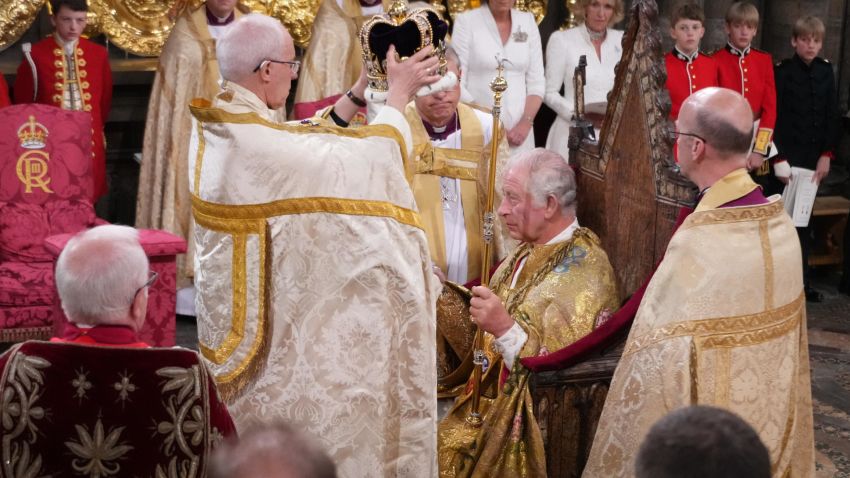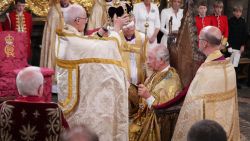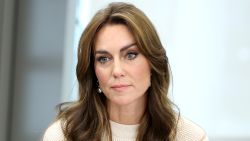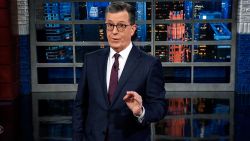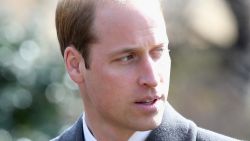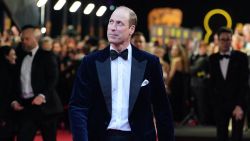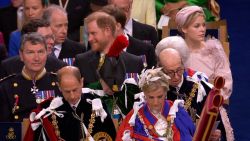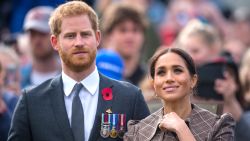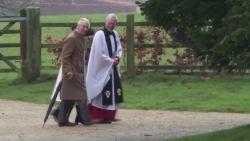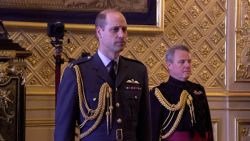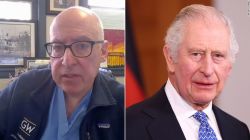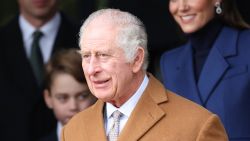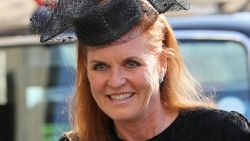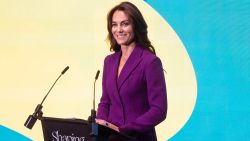This is a special coronation edition of CNN’s Royal News, a weekly dispatch bringing you the inside track on Britain’s royal family. Sign up here.
It’s the moment that capped the day: The appearance of the newly-crowned King Charles, his Queen standing proudly by his side, surrounded by members of the royal family on the Buckingham Palace balcony.
A sea of well-wishers below, soaked to the bone from the spring rain, but nonetheless thrilled to see the royals up close. The crowds of revelers frantically waved Union flags over their heads, cheers and chants of “God Save The King” punctuated the air.
The King and Queen were first to step out, followed by the pages of honor who had looked after them during the Westminster Abbey service.
They were soon joined by some of the usual familiar faces: The Prince and Princess of Wales and their three children, the new Duke of Edinburgh and his family, Princess Anne and her husband Tim Laurence, among other “working royals.”
But the absences also loomed large. There was no place for Princes Andrew and Harry, who made quiet exits following the ceremony and did not participate in the grand procession back to the palace. CNN understands Harry didn’t receive an invitation to join the family to greet the public from the balcony.
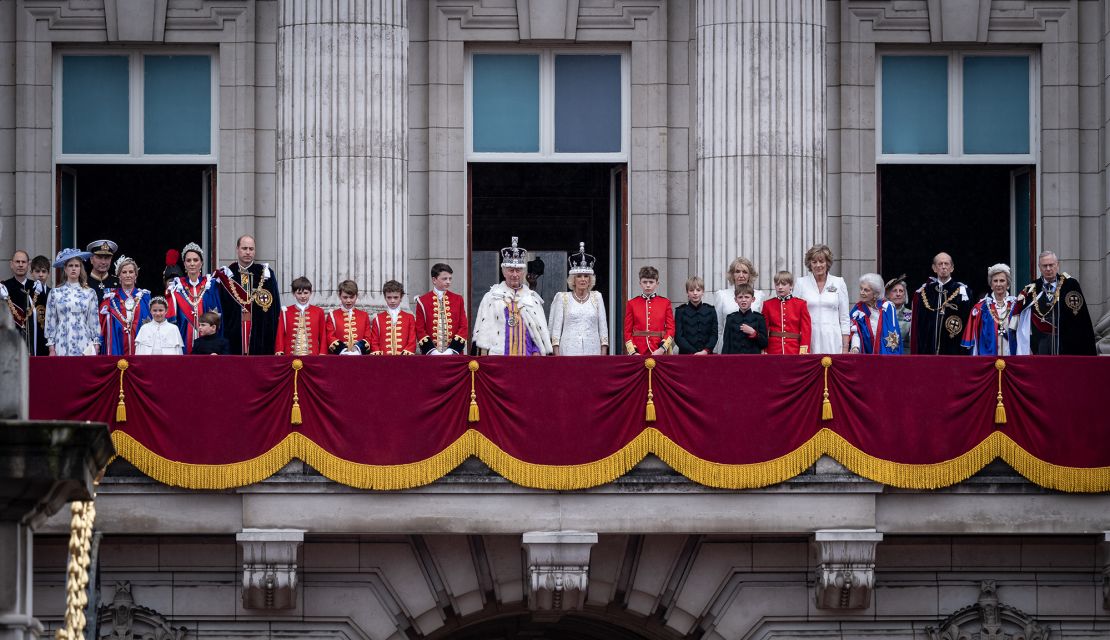
And the placings on the balcony seemed a little hurriedly put-together. CNN’s Julia Chatterly summed it up saying she “was expecting to see a dynasty moment” with the King and Queen flanked by the Prince and Princess of Wales. Instead, CNN royal historian Kate Williams described the Waleses as “crammed into the corner.”
You may not think any of this matters, but the balcony appearance is a centerpiece of royal milestones and the optics and message they project are usually carefully orchestrated.
The first recorded instance was in 1851 when Queen Victoria stepped out to wave to crowds during celebrations marking the opening of the Great Exhibition. Last summer, in what would become her last balcony appearance before her death, Queen Elizabeth II telegraphed her vision for the monarchy’s future, calling upon Britain’s next three Kings – Princes Charles, William and George – to stand by her side.
As we understand it, today’s staging was a little more impromptu – approved by the King but done so in the moment. And it left some wanting more.
As Williams put it: “This is a TV moment, this is going across the world. It’s meant to symbolize to the world what the monarchy is. Very clearly the message is: It is King Charles and Camilla; everybody else is backup.”
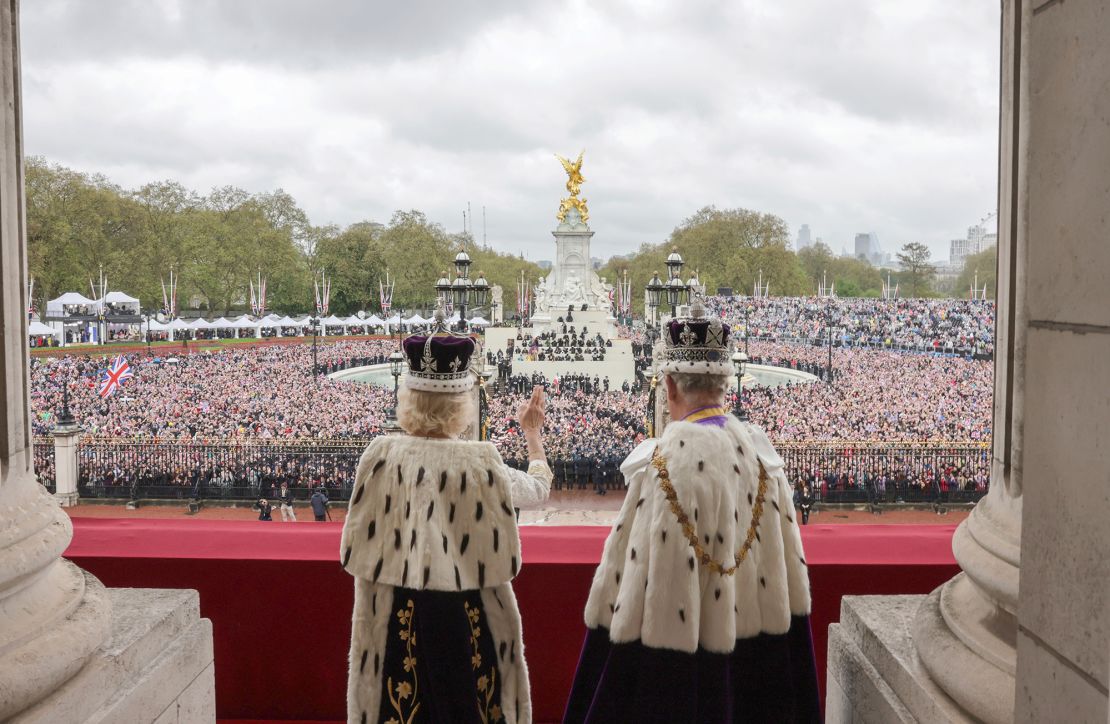
Beyond the balcony moment, ceremonially speaking, the day was note-perfect. But the palace can only control so much – and outside the abbey, not everything went to plan.
Charles would probably have hoped for better weather – always a risk when staging the event in Britain’s unpredictable springtime.
Some would have been disappointed that the famous Royal Air Force flypast was truncated due to the poor weather conditions. It lasted just two and a half minutes, down from the expected six, and didn’t include Typhoons, Spitfires or Hurricanes.
But the most troubling questions from Saturday’s events involve the handling of those who weren’t there to celebrate.
London’s much-maligned Metropolitan Police force was scrutinized in the build-up to Saturday for what many said was a heavy-handed approach, promising to “deal robustly with anyone intent on undermining this celebration.”
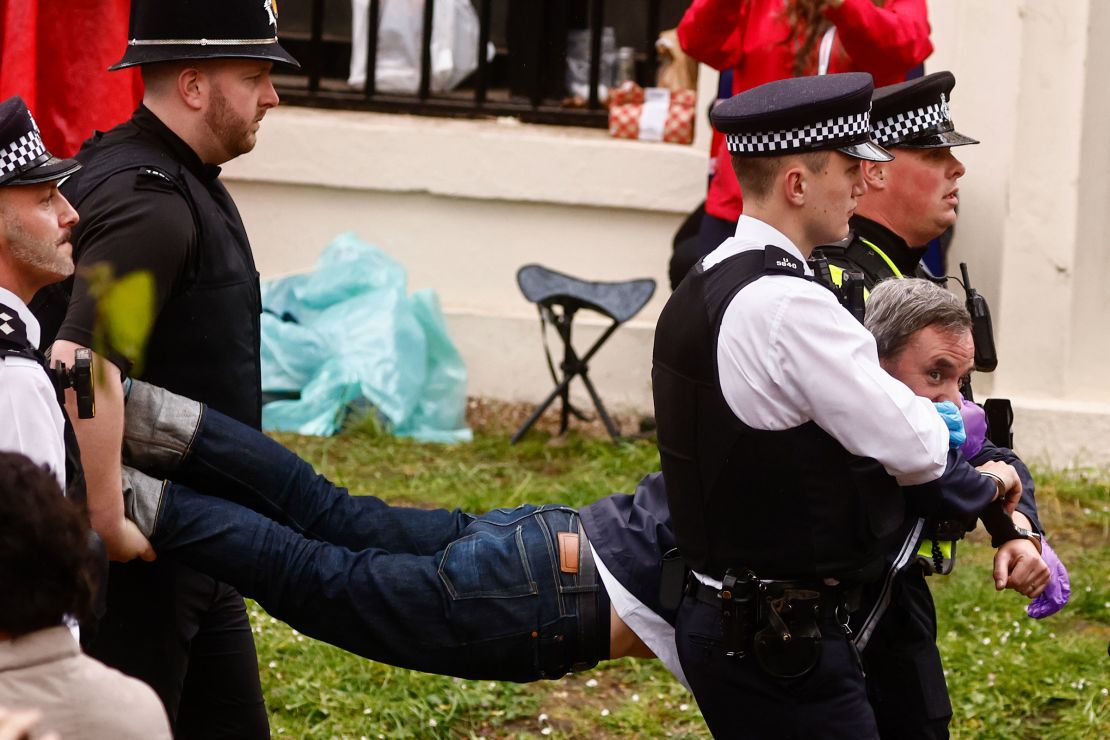
And they were true to their word: Officers made a series of arrests as anti-monarchy protesters gathered in central London; the activist group Republic said its “whole core team” was detained. “So much for the right to peaceful protest,” the group said. The Met announced later that it had made 52 arrests during the coronation celebrations.
Ultimately, Charles’ coronation wasn’t a celebration for everyone in the UK – many shrugged off the pomp with indifference, and plenty raised questions about holding the publicly-funded revelry in the middle of a cost of living crisis.
Britons were granted an extra public holiday on Monday to celebrate the coronation, and that was surely a welcome distraction for a country that needs its spirits lifting.
And while shots of Charles and Camilla on the palace balcony will dominate front pages tomorrow, the royals will know that reality has a habit of raining on even the most elaborate parade.



